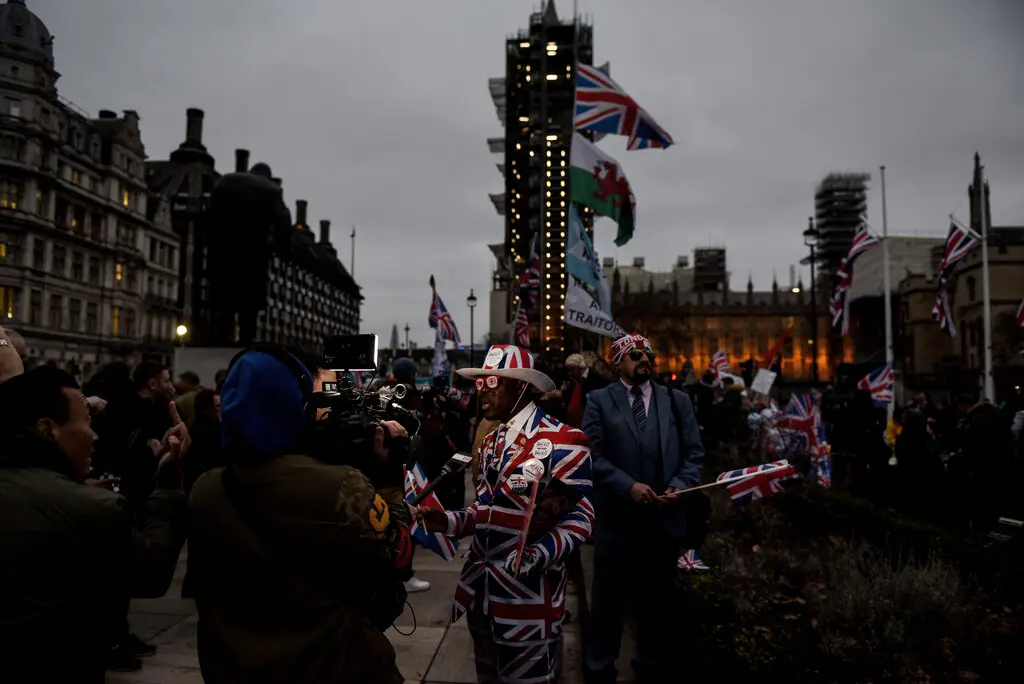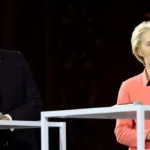
Britain’s Right-Wing Media Attack ‘Surrender Summit’ Ahead of UK-EU Meeting
As the United Kingdom prepares to host the first formal post-Brexit summit with the European Union on 19 May 2025, right-wing news media in Britain have launched a fierce campaign against the event, branding it the “Surrender Summit.” This backlash highlights the deep political and public divisions over Prime Minister Keir Starmer’s attempts to rebuild ties with the EU through a new strategic partnership beyond the existing Trade and Cooperation Agreement (TCA).
The Significance of the UK-EU Summit
The summit, held in London, marks the first institutional bilateral meeting on British soil since the UK formally left the EU in 2020. It aims to reset relations and advance cooperation on trade, security, energy, and youth mobility. The UK government presents the summit as a chance to secure deals that will boost economic growth, create jobs, and strengthen border security, all while respecting the manifesto promises of no return to free movement or EU membership.
Prime Minister Starmer has described the summit as “another step forwards, with yet more benefits for the United Kingdom,” emphasizing that the new partnership will be “good for our jobs, good for our bills and good for our borders”.
Key Summit Goals
- Enhancing trade relations and reducing barriers to support economic growth.
- Establishing a new defence and security pact to deepen cooperation on intelligence and military procurement.
- Introducing a youth mobility scheme to facilitate work opportunities for young people aged 18-30.
- Addressing sanitary and phytosanitary (SPS) checks to ease trade, especially concerning Northern Ireland.
- Collaborating on energy security and green technologies.
Right-Wing Media’s “Surrender Summit” Narrative
Despite government optimism, Britain’s right-wing press has overwhelmingly criticized the summit. Major outlets such as The Mail on Sunday, The Daily Mail, The Sun, and The Daily Express have portrayed the event as a humiliating backtrack on Brexit, accusing Starmer of betraying the UK’s sovereignty.
The term “Surrender Summit” was popularized by Conservative MP Andrew Griffith and has been widely adopted in headlines and social media. Critics allege the UK is conceding too much to the EU, particularly on regulatory alignment, judicial oversight, and fishing rights-issues that have historically sparked fierce political debate.
The Daily Express warned readers that Britain “might be compelled to send troops on EU missions,” citing a leaked memo, though the original document only stated that deployment would be considered “if invited” and was not mandatory. Fishing rights remain a flashpoint, with the EU pressing for long-term agreements linked to SPS rules, and France tying fisheries negotiations to defence cooperation. The EU’s legal action against the UK over sandeel fishing bans adds further tension.
Political Reactions and Opposition
Opposition voices, including Conservative leader Kemi Badenoch and Reform UK’s Nigel Farage, have condemned the anticipated deal as a “surrender” and vowed to overturn it if they return to power. Some Conservative MPs argue that the UK’s defence should rely solely on NATO, rejecting deeper EU security ties.
However, Labour and government officials emphasize the practical benefits of enhanced UK-EU cooperation. The proposed defence and security pact would allow the UK to participate in EU joint arms procurement and intelligence sharing, marking a shift from previous Conservative governments’ reluctance.
The summit also includes discussions on a youth mobility scheme, which has sparked controversy over immigration fears. Starmer insists this is “not freedom of movement” but a limited program offering young people reciprocal work opportunities.
Economic and Strategic Context
The UK government has set an ambitious goal to achieve the highest sustained growth rate in the G7 by the end of the current Parliament, though current forecasts suggest this target is at risk. The summit is seen as a way to smooth trading relations with the EU, the UK’s closest neighbour and largest trading partner, by removing barriers and improving cooperation.
Security cooperation is also critical amid global uncertainties. The UK and EU share strategic interests in supporting Ukraine and countering threats from Russia, Iran, and other actors. The summit aims to formalize a security and defence partnership that reflects the evolving geopolitical landscape and reduces reliance on the United States.
Summary of Key Facts and Figures
| Aspect | Details |
|---|---|
| Date of summit | 19 May 2025, London |
| Number of Olympic Games covered by Langsley | N/A (not relevant here) |
| UK economic growth target | Highest sustained growth rate in G7 by Parliament end; current forecasts lagging |
| Youth mobility scheme | For 18-30-year-olds, limited duration and numbers; public support approx. two-thirds |
| EU defence budget initiative | €150 billion ‘ReArm Europe’ plan; UK seeks access and cooperation |
| Fishing rights dispute | EU legal action over UK sandeel fishing ban; fisheries linked to SPS agreements expiring 2026 |
| Media campaign titles | “Surrender Summit,” “Don’t Betray Brexit,” “Betray Britain at your peril” |
Looking Ahead
The UK-EU summit represents a critical moment in defining the future of post-Brexit relations. While the government stresses pragmatic cooperation and mutual benefits, right-wing media and political opponents warn of sovereignty erosion and economic risks. The summit’s outcomes will influence UK-EU ties for years, shaping trade, security, and diplomatic engagement.
As the summit unfolds, the UK faces the challenge of balancing national interests with the realities of interdependence in a complex global environment.
This article integrates key facts, political reactions, and media narratives surrounding the UK-EU summit, providing a comprehensive overview for readers interested in Brexit’s evolving impact and the future of British-European relations.





